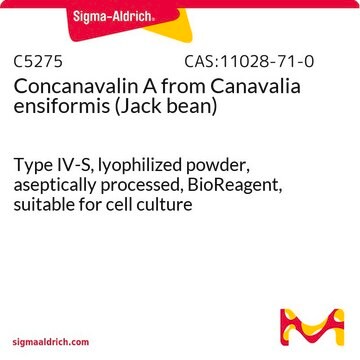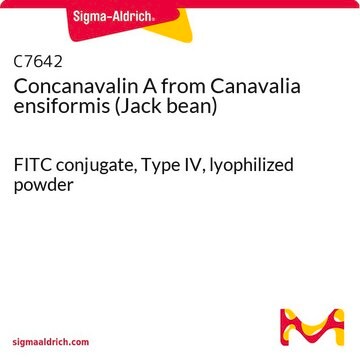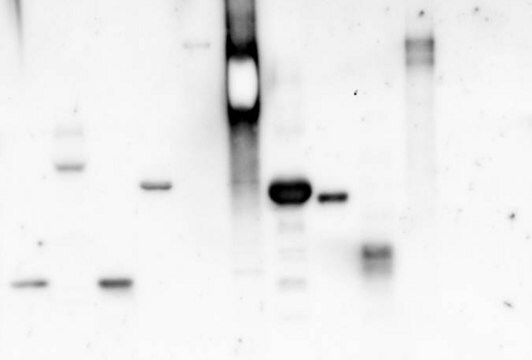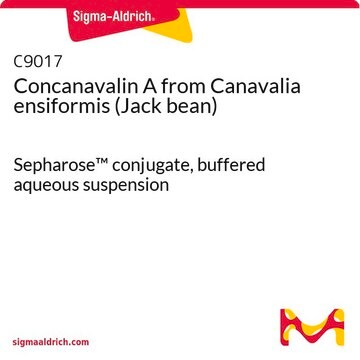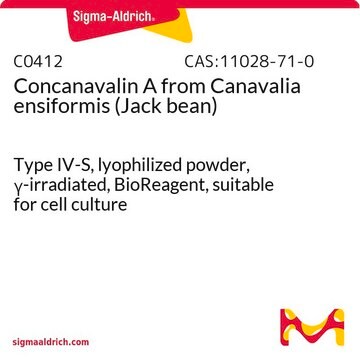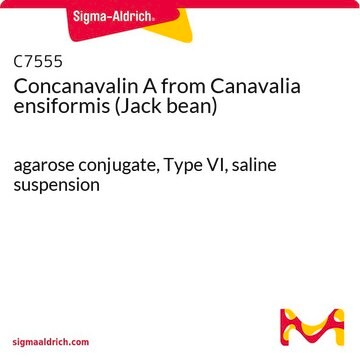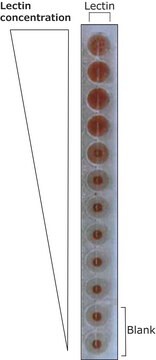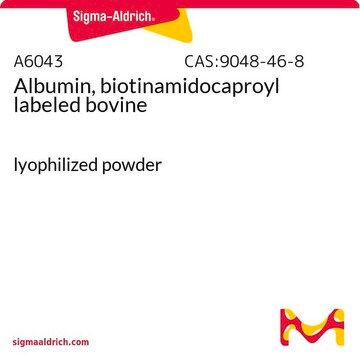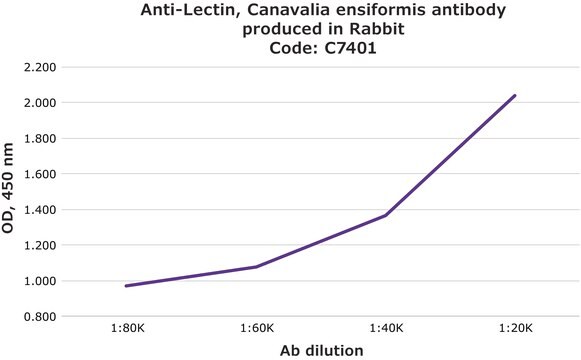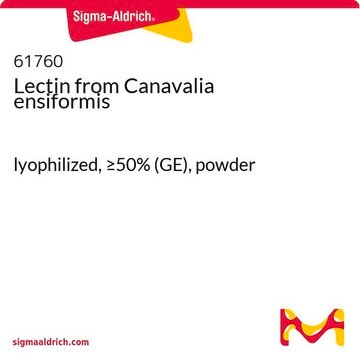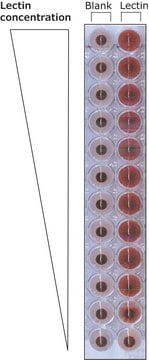C2272
Concanavalin A from Canavalia ensiformis (Jack bean)
biotin conjugate, Type IV, lyophilized powder
Synonym(s):
ConA
About This Item
Recommended Products
biological source
Canavalia ensiformis
Quality Level
conjugate
biotin conjugate
type
Type IV
form
lyophilized powder
composition
Protein, ~85% ε1%/280
extent of labeling
4-8 mol biotin per mol protein
impurities
Carbohydrate, essentially free
storage temp.
2-8°C
Looking for similar products? Visit Product Comparison Guide
General description
Application
- in the colabelling of fischer rat thyroid (FRT) epithelia(104)
- to induce autoimmune hepatitis in Cre-conditional atg7 knockout mice(105)
- to detect glycoproteins containing α-D-mannose, α-D-glucose when used with avidin or streptavidin detection system(106)
Biochem/physiol Actions
Packaging
Physical form
Analysis Note
Signal Word
Warning
Hazard Statements
Precautionary Statements
Hazard Classifications
Skin Sens. 1
Storage Class Code
11 - Combustible Solids
WGK
WGK 3
Flash Point(F)
Not applicable
Flash Point(C)
Not applicable
Personal Protective Equipment
Regulatory Listings
Regulatory Listings are mainly provided for chemical products. Only limited information can be provided here for non-chemical products. No entry means none of the components are listed. It is the user’s obligation to ensure the safe and legal use of the product.
JAN Code
C2272-PH:
C2272-10MG:
C2272-VAR:
C2272PROC:
C2272-10MG-PW:
C2272-2MG-PW:
C2272-BULK:
C2272-BULK-N:
C2272-2MG:
Choose from one of the most recent versions:
Certificates of Analysis (COA)
Don't see the Right Version?
If you require a particular version, you can look up a specific certificate by the Lot or Batch number.
Already Own This Product?
Find documentation for the products that you have recently purchased in the Document Library.
Customers Also Viewed
Our team of scientists has experience in all areas of research including Life Science, Material Science, Chemical Synthesis, Chromatography, Analytical and many others.
Contact Technical Service
